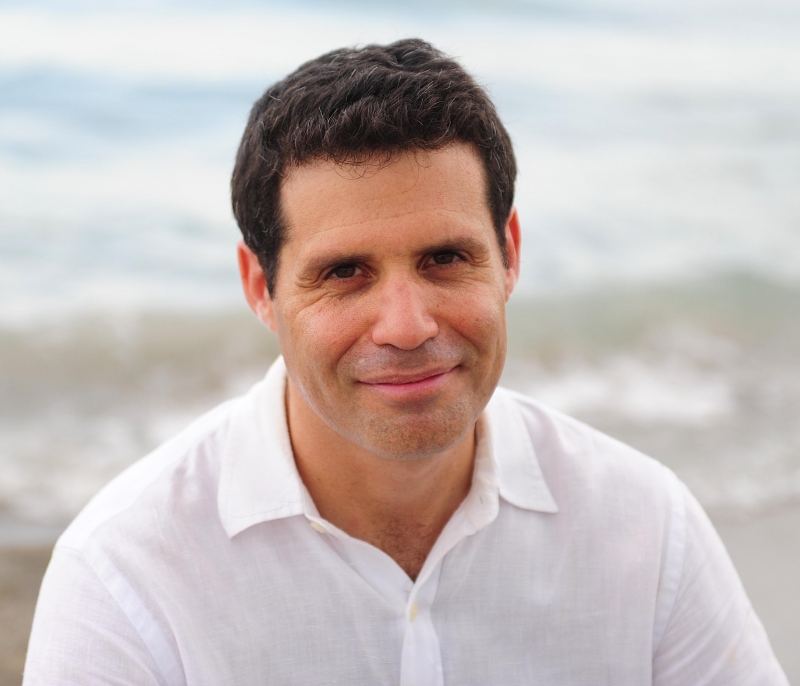Giving Others a Second Chance
Giving Others a Second Chance
 When we mess up, we expect others to give us a second chance (and even a third and a fourth), to treat us with compassion, forgiveness, and understanding. We are only human, aren’t we? But, when the offense is done by others, we are often slow to forgive. We want to see justice.
When we mess up, we expect others to give us a second chance (and even a third and a fourth), to treat us with compassion, forgiveness, and understanding. We are only human, aren’t we? But, when the offense is done by others, we are often slow to forgive. We want to see justice.
I am writing this Scribe article from a room overlooking the beautiful San Francisco Bay. No, I am not at some fancy hotel, but in a large facility that is run by ex-convicts. Delancey Street is the country’s leading residential self-help organization for former substance abusers, ex-convicts, homeless, and others who have hit bottom. Started in 1971 by a wonderful lady by the name of Mimi Silbert (she happens to be Chef Eric’s cousin), Delancey Street has six residential education homes around the country and over 18,000 people have successfully graduated from the program. The residents at the San Francisco facility support themselves by operating a moving company, a successful restaurant, a very busy café, a catering hall, and more. There is no paid staff and the whole place is run by the residents themselves. All money is funneled into the community, and each resident receives food, housing, clothing, education, entertainment, and all other services at no cost. The minimum stay is 2 years and the average stay is 4 years. The goal is for the residents to learn to lead a productive crime-free, drug-free life of purpose and integrity. Everyone learns a marketable skill and earns at least a high school equivalency degree. (Advanced education is available.)
Delancey Street takes applications from people in prison, in jail, or who walk in. While in the program, residents learn personal skills, how to break old habits, and how to get along with other people, particularly those different from them. Many have been homeless, so they are taught basic hygiene. Most have never had jobs, so they teach them basic work habits—showing up on time, listening to a boss, and getting along with coworkers. When ready, residents enter one of the vocational training schools where, with training from more experienced residents, they start at the bottom and work their way up.
The approach is unique but not new. The beliefs that brought about this wonderful organization are simple and rooted in our tradition: people can change and people deserve a second chance at life. In the first story in the Torah, God warns Adam and Eve that they will be punished by death if they eat from the forbidden tree. But after they do eat from the tree, God doesn’t kill them. They are punished and then given a path to rebuild their lives. This theme repeats itself countless times in our Bible. When the people of Israel violated the first and second commandments by making the golden calf, God wanted to destroy them, but Moses asked for forgiveness, “And God said: I have pardoned according to your plea”.
I recently participated in calls and attended meetings of Florida clergy from all religions, denominations, and political affiliations to honestly discuss our commitment to the notion of second chance. Here in Florida, nearly 1.6 million people who have served their time and paid their debts to society are permanently excluded from voting. We all agreed that it goes against Judeo-Christian core beliefs. We therefore support Amendment 4 that would return the eligibility to vote to people only after they have completed their full sentences, including parole, probation, and restitution. The law specifically excludes those individuals who have committed murder or a felony of sexual offense. I implore you all to join my fellow Clergy from all around Florida and support this amendment. We need love and forgiveness for our community to thrive.
Thu, July 31 2025
6 Av 5785
Upcoming Events
-
Thursday ,
JulJuly 31 , 2025TODDLER ENRICHMENT PROGRAM
Thursday, Jul 31st 10:00a to 11:15a
-
Thursday ,
JulJuly 31 , 2025Canasta
Thursday, Jul 31st 1:00p to 3:00p
-
Friday ,
AugAugust 1 , 2025TODDLER ENRICHMENT PROGRAM
Friday, Aug 1st 10:00a to 11:15a
-
Friday ,
AugAugust 1 , 2025Shabbat Service
Friday, Aug 1st 6:30p to 7:30p
-
Wednesday ,
AugAugust 6 , 2025Mah Jongg
Wednesday, Aug 6th 1:00p to 3:00p
-
Thursday ,
AugAugust 7 , 2025Canasta
Thursday, Aug 7th 1:00p to 3:00p
-
Friday ,
AugAugust 8 , 2025Shabbat Service
Friday, Aug 8th 6:30p to 7:30p
-
Saturday ,
AugAugust 9 , 2025Men's Club Summer Dinners at Cafe Sole
Shabbat, Aug 9th 6:30p to 7:30p
-
Monday ,
AugAugust 11 , 2025BOOK CLUB - THE OVERSTORY - Richard Powers
Monday, Aug 11th 10:30a to 12:00p
-
Wednesday ,
AugAugust 13 , 2025Mah Jongg
Wednesday, Aug 13th 1:00p to 3:00p
Update this content.
Come Together
Something meaningful and dynamic is happening here at Temple Beth Am. It springs from the warmth of our welcome and the energy of our actions. We call it: Kulanu - All of Us Together.
Join UsUpcoming Events
-
Thursday ,
JulJuly 31 , 2025TODDLER ENRICHMENT PROGRAM
Thursday, Jul 31st 10:00a to 11:15a
-
Thursday ,
JulJuly 31 , 2025Canasta
Thursday, Jul 31st 1:00p to 3:00p
-
Friday ,
AugAugust 1 , 2025TODDLER ENRICHMENT PROGRAM
Friday, Aug 1st 10:00a to 11:15a
-
Friday ,
AugAugust 1 , 2025Shabbat Service
Friday, Aug 1st 6:30p to 7:30p
-
Wednesday ,
AugAugust 6 , 2025Mah Jongg
Wednesday, Aug 6th 1:00p to 3:00p
Privacy Settings | Privacy Policy | Member Terms
©2025 All rights reserved. Find out more about ShulCloud

